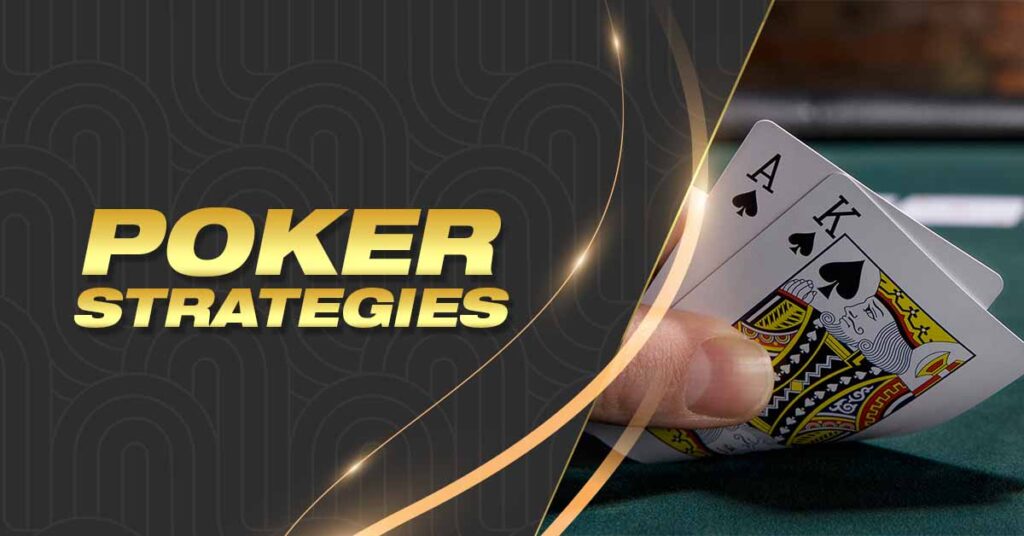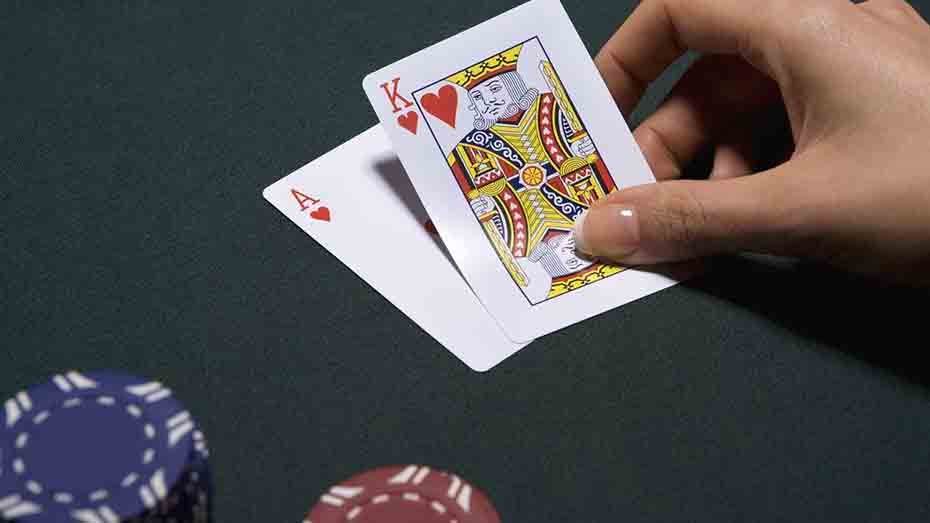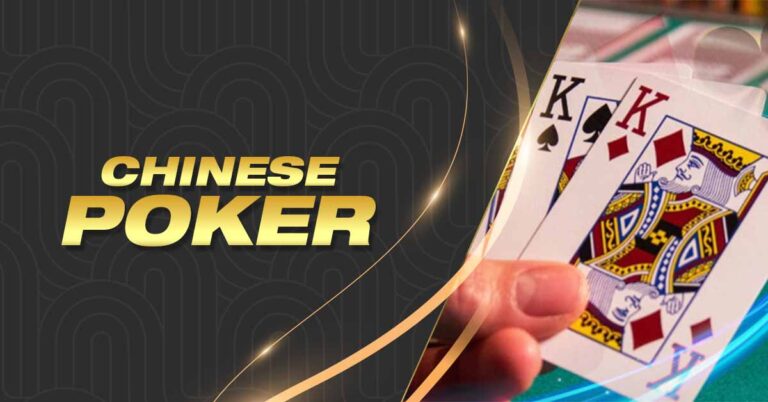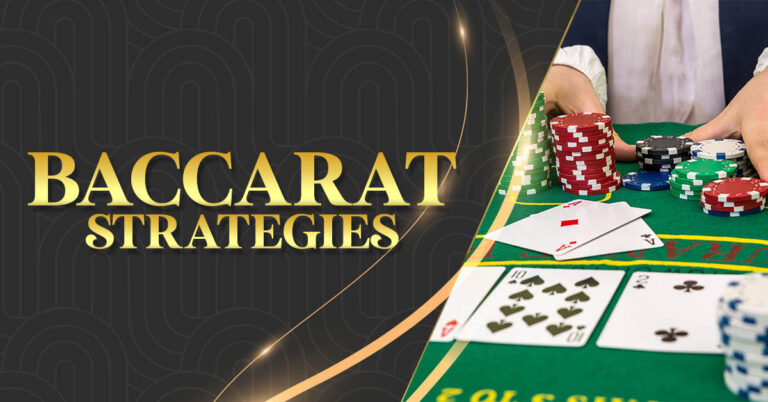Winning Big | Effective Poker Strategies on India24bet
For novice players venturing into online poker, acquiring a set of poker strategy tips is invaluable. It’s common for beginners to harbor the belief that any hand possesses the potential to transform into a winning combination with a stroke of luck involving community cards. This misconception is particularly prevalent in the initial phases of poker gameplay. Seasoned poker players, in contrast, commit poker hand rankings to memory as a means of identifying winning hands.

Outlined below is a fundamental guide to poker hand rankings:
An overarching online poker tip to adhere to is the inclination to fold any hand below a pair in the early stages of play.
Select Your Starting Hand Carefully
Exercise caution in selecting your starting hand during poker games. While it may be tempting for a novice player to participate in every hand, it is essential to resist this inclination. Choosing your starting hands judiciously is a crucial aspect of a sound poker strategy. Opting for a measured approach, wherein you fold mediocre hands and seize opportunities with formidable ones, forms the bedrock of a successful poker strategy. This strategic choice prevents you from investing valuable resources in suboptimal hands where the odds are stacked against you.

The best starting hands in poker, starting with pocket aces, can be categorized as follows:
In late positions, it is advisable to raise with these premium hands. Some cards, such as A-A and K-K, may even warrant a raise in early positions, placing you among the first to act after the flop.
Additionally, hands like 10-10, 9-9, 8-8, 7-7, 6-6, and suited aces like A-10, A-9, A-8 can be included in your repertoire. However, exercise caution with small pairs like 2-2 and 3-3, as they are best played to extract value on the flop, and it’s important not to become overly attached to them.
Embrace Strategic Range Play in Your Poker Game
Playing in ranges rather than fixating on specific hands is a pivotal poker strategy. A key skill in this approach is the ability to identify the typical behaviors of novice players during a game. Observational acumen is crucial when navigating an online poker table, and distinguishing between beginner and advanced players can significantly impact your decision-making process.

Here’s a breakdown of the disparity in mindset:
By adopting a range-oriented approach, advanced players elevate their strategic thinking beyond the limitations of singular hands, gaining a more comprehensive understanding of the dynamics at play in a poker game.
Recognizing Betting Patterns in Poker Strategies
Although the initial hand can significantly shape the course of play, it doesn’t singularly define a player’s strategy in winning an online poker game. While securing the best early hand is generally considered an optimal approach, the dynamics at the table can be influenced by various factors, especially when facing off against seasoned players.

An effective method for gauging the ebb and flow of the game involves the well-established practice of discerning an opponent’s poker strategy and making astute judgments about their cards. While not an overt online poker tip, gaining insights into an opponent’s mindset can be achieved by closely scrutinizing their betting patterns. Although it may take time to master, especially for beginners, acquainting oneself with advanced gameplay tactics can be highly beneficial. Valuable information can be gleaned from studying a player’s betting style throughout each round and observing how it manifests during the showdown.
Embracing Diverse Playing Styles in Online Poker
An essential piece of advice for online poker enthusiasts is to incorporate a range of playing approaches, given the dynamic nature of the game. Some of these strategies include:

The crux of a successful poker game lies in adaptability, employing a style that suits the specific circumstances. Consistently predictable play often leads to defeat, emphasizing the importance of being flexible. Play cautiously when necessary, make bolder calls when the situation demands it. For beginners, a ‘tight-aggressive’ combination can be a prudent choice. By varying your playing style strategically, you enhance your chances of winning more substantial amounts in the diverse landscape of poker.
Leveraging Positional Advantage in Poker Play
One of the pivotal poker strategy tips involves a keen understanding of your table position, a factor that can significantly influence your decision-making.
When situated in an early position, being the first to act may expose you to potential raises or re-raises. Conversely, occupying a late position affords you a strategic advantage by providing insights into your opponents’ actions and potential holdings.

The importance of your position extends beyond mere logistics; it fundamentally shapes your approach to raising, calling, and determining the level of aggression both before and after the flop.
For instance, when no raises have transpired, a prudent move is to raise small pocket pairs when in a late position. However, the same hands may warrant only a call when in an early position. As you approach the small blind, a heightened sense of caution becomes imperative.
Avoid Being the Initial Limping Player in Poker
For novice poker players, a crucial guideline is to refrain from being the first to limp into a pot. This advice is grounded in two primary reasons:

A more advanced poker strategy involves considering limping when at least one player has already limped. This approach is advantageous because it presents an opportunity to capitalize on favorable pot odds, increasing the potential for a positive outcome. By timing your limps strategically, you enhance your chances of gaining value from the pot and navigating the complexities of poker gameplay more effectively.
Mastering the Art of Bluffing in Poker
In the intricate realm of poker, the game theory underscores the significance of bluffing as a strategic tool employed by top players to secure pots. In poker tournaments, it is common to encounter situations where the flop or turn doesn’t align favorably with your hand. Developing the skill of bluffing becomes a crucial strategy to induce opponents to fold.

The adept use of bluffing involves a nuanced understanding of the continuation bet (c-bet), a tactic initiated after leading the betting preflop and extending into the flop. Regardless of whether the flop is in your favor or not, a well-executed c-bet keeps the narrative of the hand progressing. Moreover, the c-bet serves as a valuable tool for concealing your made hands, particularly if you have cultivated an aggressive playing persona. In such instances, your opponent might interpret your move as an attempt to buy the pot, even when you possess a strong hand, adding an element of unpredictability to your gameplay. Sharpening your bluffing skills, especially through the strategic use of the c-bet, can significantly enhance your ability to influence the dynamics of a poker hand and elevate your overall performance in the game.
Executing Aggressive Semi-Bluffs with Precision
In the realm of poker, bluffing remains a pivotal strategy capable of transforming a losing game into a victorious one. Amidst the diverse bluffing techniques, ‘semi-bluffing’ emerges as a strategic approach wherein a player chooses to bluff only when holding a promising hand. In this context, the decision to bluff is contingent upon the player having the potential to improve their hand to the best possible one in the subsequent rounds.
Unlike a total bluff with a negligible hand, semi-bluffing introduces a calculated element by incorporating outs that could enhance the hand’s strength in later phases. The rationale behind this approach lies in avoiding the inherent risks associated with bluffing with a completely weak hand before the river, a tactic prone to higher chances of failure.
The key lies in establishing specific criteria for executing a semi-bluff, such as assessing whether the current hand possesses potential showdown value during the ongoing betting round, for instance, having a pair or ace-high. By adhering to such criteria, poker players can strategically navigate the fine line between bluffing and folding, optimizing their chances of success in the unpredictable landscape of the game.
The Pitfalls of Excessive Bluffing in Poker
An imperative poker principle to bear in mind is the potential downside of excessive bluffing—it can lead to a dismal loss in the game. While poker tournaments may highlight the art of bluffing, relying solely on this strategy is not conducive to success in cash games. Bluffing, when employed excessively, becomes a risky approach that can undermine your overall performance.
Bonus Strategies for Every Poker Enthusiast
Here are bonus strategies tailored for poker enthusiasts, offering valuable insights to elevate your game.

Exploit Slight Weaknesses
Capitalize on your opponent’s vulnerability when they display signs of having a relatively weak hand. Recognizing subtle indications of weakness allows for aggressive bluffing tactics. Embrace not only semi-bluffs but also incorporate pure bluffs into your poker strategy when your opponent exhibits susceptibility. This assertive approach can yield favorable outcomes and enhance your overall gameplay.
Discipline in Folding
Exercise discipline by folding when uncertainty arises. While a fundamental poker principle, many players struggle to adhere to it during actual gameplay. The mental aspect of poker plays a crucial role, and a skilled player distinguishes themselves by folding hands judiciously. Whether facing a challenging decision with a good pair or navigating the initial betting round, opting to fold when unsure is a mark of strategic acumen.
Hand Selection Tactics
Tailor your hand selection based on your seating position. Favor stronger hands when in an early position, reserving the top two tiers of hands and avoiding weaker ones like AQ, AJs, AT, KQs, etc. The rule is clear: refrain from playing weak hands when positioned early. Additionally, guard against slipping into “Calling Station Mode,” where excessive calling can compromise your strategic edge. Staying vigilant with hand selection contributes significantly to sustained success at the poker table.
FAQs
Conclusion
In conclusion, mastering effective poker strategies is a dynamic process that requires a combination of skill, adaptability, and strategic thinking. From recognizing the value of premium hands to understanding the nuances of positional advantage and the art of bluffing, players on India24bet can elevate their gameplay by embracing these insights. By carefully selecting starting hands, playing in ranges, and incorporating diverse playing styles, poker enthusiasts can navigate the complexities of the game with greater confidence, ultimately increasing their chances of success on the virtual tables.

















